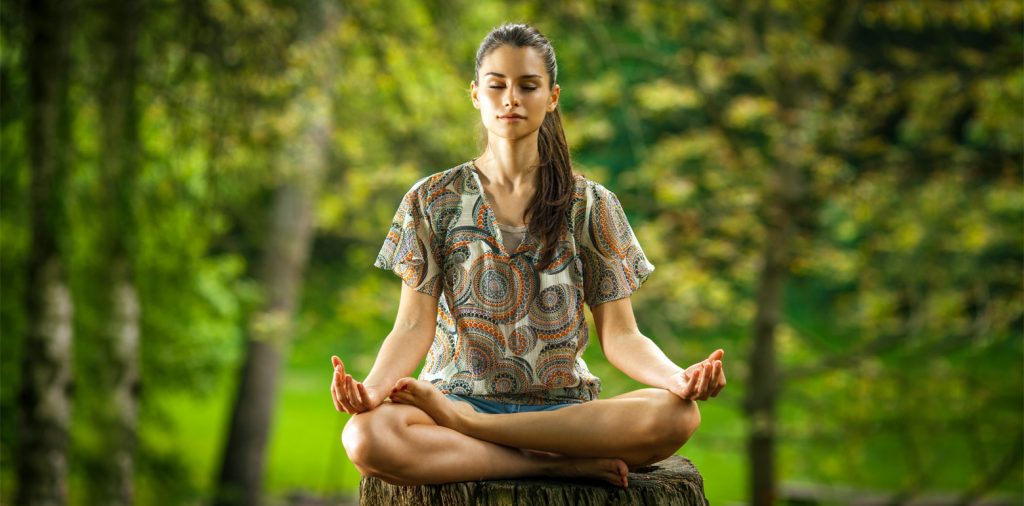If there’s one complaint about modern living that we hear again and again, it’s the extreme levels of tiredness and exhaustion that appears to affect a huge proportion of adults. How many times have you heard or said the phrase “I’m knackered”, dragged yourself out of bed in a fog of exhaustion, or cancelled on social engagements simply because you can’t muster the energy? It’s something which impacts so many people that we’ve even come to see it as normal.
The millstone of exhaustion is something that drags us down, making it hard to engage at work or muster enthusiasm for hobbies, sapping enjoyment from even the happiest days. Many of us feel as if the sense of tiredness we carry is preventing us from being everything that we want to be, while the accompanying irritability and listlessness also means we don’t feel at our best in our relationships either.
One study, carried out via OnePoll.com, found that more than half the population struggle so much with tiredness, that they often spend their weekends recovering from the working week instead of going out socialising or partying. This study also found that adults spend two hours and 56 minutes each day feeling drained and low in energy – more than twenty hours each week.
If this all sounds familiar, then you may be interested to find out that using meditation for tiredness is a hugely effective way to boost your energy levels. By removing the filter of physical and mental exhaustion which suffuses our days with grey, meditation fills us with verve and vitality, and re-injects our lives with the sparkle and zest that can too often go missing.
Note: While tiredness is usually due to lifestyle factors and something that most people experience from time to time, feeling profoundly tired for no obvious reason can occasionally be the result of an undiagnosed health issue or vitamin deficiency. If you feel exhausted all the time, and most especially if normal activities (such as climbing a flight of stairs) leave you utterly drained, the first thing you should do is visit your GP, who will arrange a blood test.
The Causes of Tiredness
There are a variety of issues which can cause or exacerbate tiredness, including:
- A diet that is heavy in refined carbs or lacking in certain nutrients. Regularly consuming alcohol or not getting enough calories can also have an impact.
- Not being properly hydrated. Being dehydrated affects us in a variety of ways, including by reducing our energy levels.
- A sedentary lifestyle. With so many of us working at our desks it can be hard to stay active, and counterintuitively, not moving enough can actually make us feel more tired.
- Lack of sleep, poor quality sleep and disrupted circadian rhythms. A good night’s rest is vital to our wellbeing, and getting enough sunlight when we’re awake is important too.
- High stress levels. Perhaps the most important factor in feeling low energy is stress, with chronic stress having an impact on every other aspect of our physical and mental wellbeing.
In the modern world, we are often overflowing with stress, contending with a barrage of physiological processes and hormones that – without the chance to dissipate naturally, as they should – start to create a multitude of negative physical and mental effects. For many of us, perhaps the most noticeable and consistent effect on our wellbeing is an unshakable sense of fatigue.
Unfortunately, stress tends to beget more stress – both in the sense that our body\’s nervous and hormonal systems work in a series of feedback loops, and in the fact that feeling stressed and tired will inspire behaviours that offer short term relief but ultimately make the situation worse.
For example, we know that diet has a part to play in our energy levels and that being active makes us feel more vibrant, but stress has an observable impact on our food and exercise choices. After the big dose of adrenaline that comes with a stressful day, another hormone known as cortisol tends to hang around, and this hormone tells our body to replenish its food supply.
It makes sense, evolutionarily, that if we have expended energy in fight or flight that we should then be motivated to regain this energy, but in our modern lives this means experiencing spikes of hunger after nothing more active than reading angry emails – and cortisol often motivates us to choose high fat, high sugar options.
In addition to this, not getting enough sleep through stress is linked to greater cravings for high sugar foods, decreased ability to make thoughtful decisions and (unsurprisingly) less inclination to exercise. This all leads to a spiral where, through tiredness, we do less physical activity and therefore exacerbate feelings of low energy, and our food choices make crashes throughout the day even more likely.
We stop doing the things which make us refreshed and happy – such as going for that bracing evening walk or popping to the swimming pool with a friend – and replace them with short-term fixes. It might be a syrupy latte in the morning (offering a sense of sweet milky comfort as well as a energy boost) or two glasses of wine to ease you into a down-graded sleep (accompanied by the inevitable 3am wake up with a dry mouth and racing mind). Over time, habits become entrenched and our tiredness seems never ending – but meditation can help.
How Meditation Reduces Tiredness
Meditation is an incredibly powerful circuit breaker in this situation. Unlike short term fixes such as caffeine, sleeping pills and energy drinks, meditation gets to the true root of our tiredness and solves the issue from this profound place. It works with our bodies on both a psychological and physical level to pull the breaks on the patterns and behaviours that make us feel so profoundly exhausted.
With meditation, it\’s possible to boost your energy over the long term and say goodbye to daily fatigue, and here\’s why:
- Perhaps one of the most immediate and powerful benefits of Beeja meditation is in the often transformative effect it can have on our sleep. People who have suffered with insomnia for years often find that meditation takes them from a night of tossing and turning to deep, nourishing sleep in just a few days. As sleep is a vital part of the way our body rests and heals, the impact this has on our wider wellbeing can\’t be underestimated.
- Without the clouding influence of stress playing such a key role in our day-to-day experiences, meditation helps us to understand more intuitively what our body needs. This might be a bowl of ice cream (or even a tasty cocktail!) after a long day, or more often a home-cooked meal stuffed full of nutritious veggies – without the stress, we are in a much better position to make the best decisions for ourselves, without feeling like it\’s an effort or deprivation. This increases our energy by stopping the fuel and burn cycle which causes slumps throughout the day, and helping us to effortlessly choose the sustenance our bodies truly need.
- Meditation has the effect of bringing our hormones into balance, so we feel less overwhelmed by everyday challenges. Cortisol (if it hangs around our system for too long as it does in cases of chronic stress) makes us feel awful – undermining our immune system, impairing our decision-making abilities and draining our energy. By bringing our hormone levels to a more balanced place, we start to feel far more normal – refreshed after a long sleep, interested in the content of our days and generally brighter and happier.
- The effect this has on our immune system is important too. Sniffles, mouth ulcers, cold sores – they are all signs of feeling run-down, and as our beleaguered immune system tries to work extra hard to fight them off, we feel the impact on our energy levels. Without cortisol to get in the way of our immune systems normal functioning we become far less vulnerable to these little attacks on our wellbeing.
- Meditation increases our enthusiasm for life. In the same way that stress begets stress, meditation can trigger lots of feedback loops of happiness, both within our bodies and in our lifestyles. So we put our body into \”rest and repair\” mode more often and begin to heal those patterns of chronic stress, replacing them with new, healthier patterns instead. And we start to do more of the things we love, whether that\’s walking, surfing, seeing friends or creating art, and that stokes our happiness and passion for our lives. Eventually, we realise that we simply don\’t feel as tired during the day anymore and when we do feel tired, it\’s because we\’ve been out expending all that new extra energy enjoying ourselves – falling into a sound sleep each night after a day well spent.
If you would like to find out more about meditation and it\’s benefits, take a look at our free online intro talks.

The Benefits of Beeja Meditation
- Reduce stress and anxiety
- Greater clarity and calm
- Increase focus
- Enhance relationships
- Sleep better
- Feel energised



